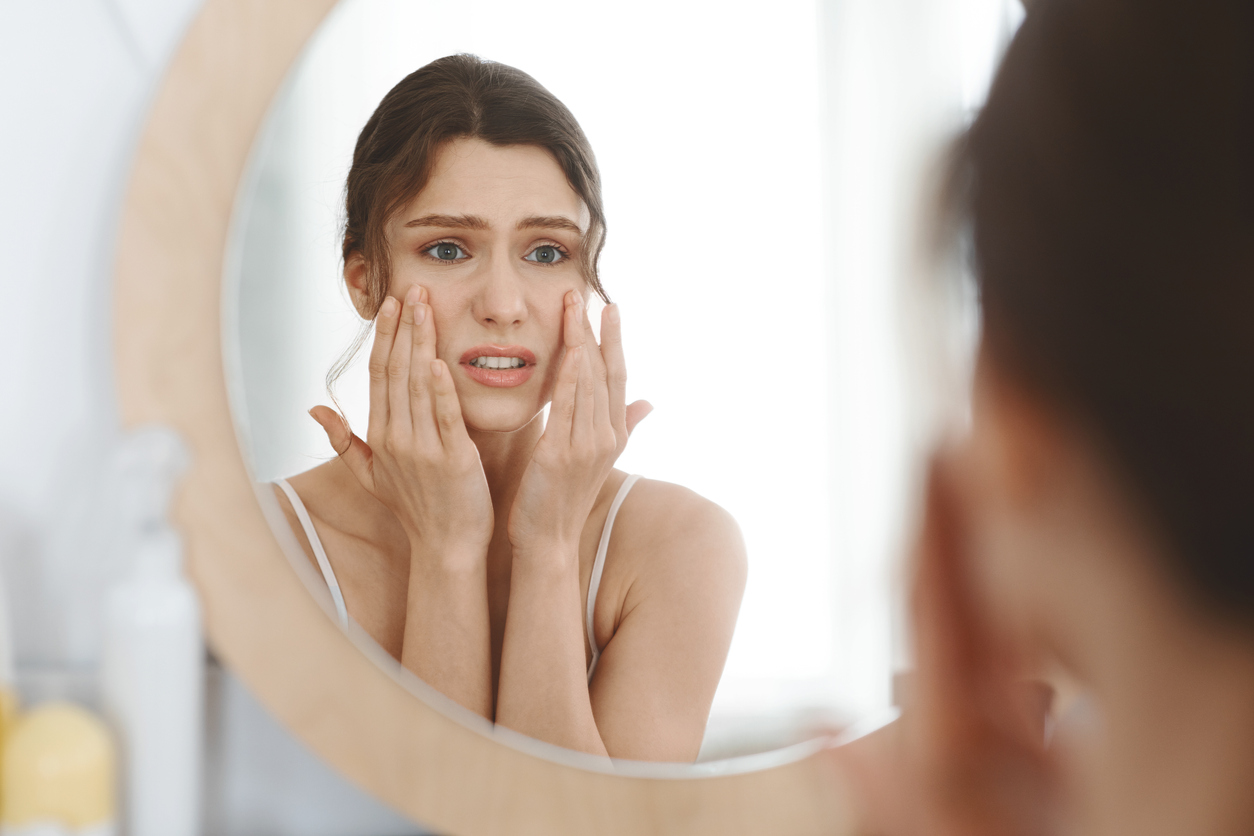
Acne is a common skin condition that affects millions of people worldwide, often causing physical and emotional distress. While many factors contribute to the development of acne, stress is a well-known culprit that can exacerbate existing conditions or trigger new breakouts. However, how does stress increase acne? It’s essential to understand how stress-incuded acne forms, the differences between hormonal and stress acne, and effective ways to manage and treat stress-induced acne.
Does Stress Increase Acne?
Acne is a multifactorial skin condition, primarily influenced by hormonal fluctuations, genetics, diet, and environmental factors. Stress, however, can undoubtedly play a role in worsening acne. Stress triggers various physiological responses, including hormonal changes, inflammation, and an increase in sebum (skin oil) production, all of which can contribute to the development or exacerbation of acne.
Hormonal vs. Stress Acne
It’s important to distinguish between hormonal acne and stress-induced acne, as they may require different treatment approaches.
Hormonal Acne
Hormonal acne is primarily driven by fluctuations in sex hormones like testosterone, estrogen, and progesterone. It often appears in specific areas, such as the chin and jawline, and is characterized by deep, painful cysts and nodules. Hormonal acne is more common in women and often flares up during menstruation, pregnancy, or when using certain contraceptives.
Stress Acne
Stress acne, on the other hand, can affect people of all genders and is often characterized by smaller, more widespread pimples. It is more likely to appear on the forehead, cheeks, and nose. While it can be exacerbated by hormonal fluctuations, it is primarily triggered or worsened by stress.
What Does Stress Acne Look Like?
Stress acne typically presents as an array of small, red or pink pimples that can be scattered across various areas of the face. These facial acne pimples often take the form of whiteheads or blackheads and can progress into pustules, which are red, pus-filled bumps, or papules, which are small, raised bumps. One common characteristic of stress acne is increased oiliness of the skin due to hormonal changes, leading to clogged pores and breakouts. While the severity of stress acne varies from person to person, these visible manifestations can cause discomfort and self-consciousness.
Where Does Stress Acne Appear?
Stress acne commonly appears in the following areas:
- Forehead: The forehead is a common site for stress-related breakouts. These may manifest as small pimples or whiteheads.
- Cheeks: Pimples may appear on the cheeks, often taking the form of red papules or pustules.
- Nose: The nose can develop blackheads and whiteheads due to increased oil production.
- Chin: Stress acne on the chin may resemble small pimples or whiteheads.
How Long Does Stress Acne Last?
The duration of stress acne can vary depending on several factors, including the individual’s stress levels, skincare routine, and overall health. In some cases, stress-related breakouts may resolve on their own within a few weeks once the stressful situation has passed. However, chronic stress can lead to persistent acne. Proper management and treatment can significantly shorten the duration of stress acne.
How to Get Rid of Stress Acne
Managing and reducing stress is a crucial step in preventing and treating stress-induced acne. Here are some strategies to consider.
Stress Management
Stress management can provide many benefits to your skin, including:
- Practice relaxation techniques: Engage in mindfulness meditation, deep breathing exercises, or yoga to reduce stress levels.
- Get enough sleep: Aim for 7-9 hours of quality sleep each night to promote skin health and overall well-being.
- Regular exercise: Physical activity can help relieve stress and promote healthy skin. Just be sure to cleanse your skin afterward to prevent sweat-induced breakouts.
- Maintain a balanced diet: Consume a diet rich in fruits, vegetables, and whole grains, and limit the consumption of sugary and greasy foods.
- Stay hydrated: Proper hydration can improve skin health and reduce the risk of acne.
Skincare Routine
Creating an effective and personalized skin routine can:
- Use gentle cleansers and non-comedogenic (won’t clog pores) skincare products.
- Avoid excessive scrubbing, as this can irritate the skin.
- Consider over-the-counter acne treatments with ingredients like salicylic acid or benzoyl peroxide.
Seek Professional Help
If your stress acne is severe or persistent, consult a dermatologist for a personalized treatment plan, such as one with blue light therapy. Dermatologists may recommend prescription medications, such as topical or oral antibiotics, retinoids, or hormonal treatments.
Acne Treatment at the Center for Dermatology
At the Center for Dermatology, we understand the impact that acne can have on your physical and emotional well-being. Our team of experienced dermatologists offers comprehensive treatment options for all types of acne, including stress-induced breakouts. We work with each patient to develop a customized treatment plan tailored to their specific needs and goals. Don’t let stress acne control your life. Contact us today to get started.